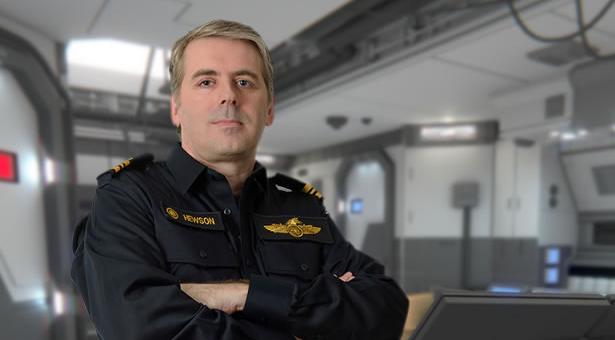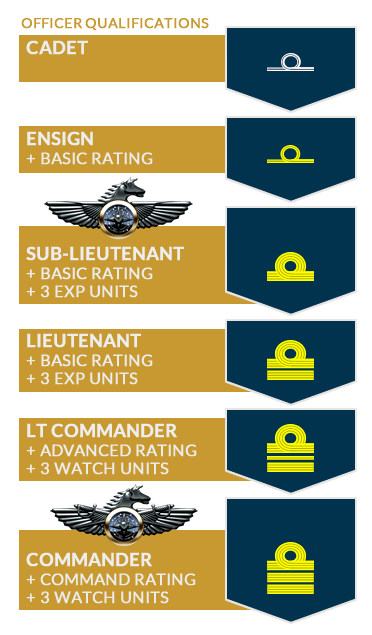

Officers are the coordinators of the ISDC, ensuring the successful completion of missions and projects. Officers are also responsible for the health, safety and career development of those under their command.
Within the ISDC officers are military specialists (as opposed to warrant officers who are civilian technical or scientific specialists) focused on developing the leadership skills necessary to ensure effectiveness in dangerous and tactically complex environments.
Career Tracks
While crew typically undertake very technically focused careers, officer careers aim for a broader range of skills and experience. This wider operational context positions officers to manage the people and resources contributing to their mission, department or project.
 Officers can expect to train and work across different systems as influenced by their interests and missions.
Officers can expect to train and work across different systems as influenced by their interests and missions.
A combination of training and mission experience determines advancement.
Ratings
When training is completed on a ship system a qualification known as a rating is awarded, so called because it means the successful trainee is now ‘rated’ to operate that system during missions.
Ratings are awarded at basic and advanced levels.
Experience
Active duty on missions is logged as evidence of an officer’s experience, expressed in units of 100 hours.
Experience is gained at basic and advanced levels, depending on the assessed complexity of a mission.
Qualification and Advancement
Initial entry is as a cadet. After basic training, the cadet will be asked to select a rating to train towards. When this is completed the newly promoted ensign is now able to join missions and begin to gain experience.
By accumulating experience and attaining additional ratings officers can advance in rank up to lieutenant. At this point the officer can begin to accumulate a special class of experience known as watch hours, which are required for further advancement.
Watch Hours
Watch hours are accumulated where the officer has held a command position during a mission, such as the conn or an executive officer position.
Command Rating
After attaining the rank of Lieutenant Commander officers may be eligible for command training. To achieve a command rating candidates must complete a challenging series of evaluation missions.
Specialist Officers
Engineering, science and medical departments require specific technical knowledge and skills from their officers.
Training for specialist officers is less generalized than for other officers and typically focused solely within the specialistion.
There is no policy preventing specialist officers attaining command.
Changing Career Tracks
There is no policy preventing officers from changing to a crew career track. Ratings and accumulated experience can be transferred without penalty, with equivalent rank awarded subject to candidate suitability.








